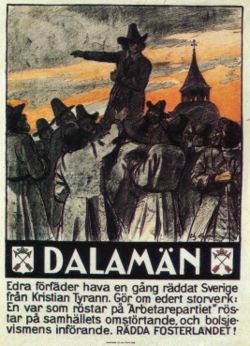| |||||||||||||||||||||||||||||||||||||||||||||||||||||||||||||||||||||||||||||
All 230 seats in the Andra kammaren of the Riksdag | |||||||||||||||||||||||||||||||||||||||||||||||||||||||||||||||||||||||||||||
|---|---|---|---|---|---|---|---|---|---|---|---|---|---|---|---|---|---|---|---|---|---|---|---|---|---|---|---|---|---|---|---|---|---|---|---|---|---|---|---|---|---|---|---|---|---|---|---|---|---|---|---|---|---|---|---|---|---|---|---|---|---|---|---|---|---|---|---|---|---|---|---|---|---|---|---|---|---|
| |||||||||||||||||||||||||||||||||||||||||||||||||||||||||||||||||||||||||||||
 Largest bloc and seats won by constituency | |||||||||||||||||||||||||||||||||||||||||||||||||||||||||||||||||||||||||||||
| |||||||||||||||||||||||||||||||||||||||||||||||||||||||||||||||||||||||||||||

General elections were held in Sweden between 15 and 21 September 1928. [1] The Swedish Social Democratic Party remained the largest party, winning 90 of the 230 seats in the Andra kammaren of the Riksdag. [2] Arvid Lindman of the General Electoral League became Prime Minister, replacing the incumbent, Carl Gustaf Ekman of the Free-minded National Association. The elections have since become known as the "Cossack election" due to the harsh tone and aggressive criticism used by both sides.






